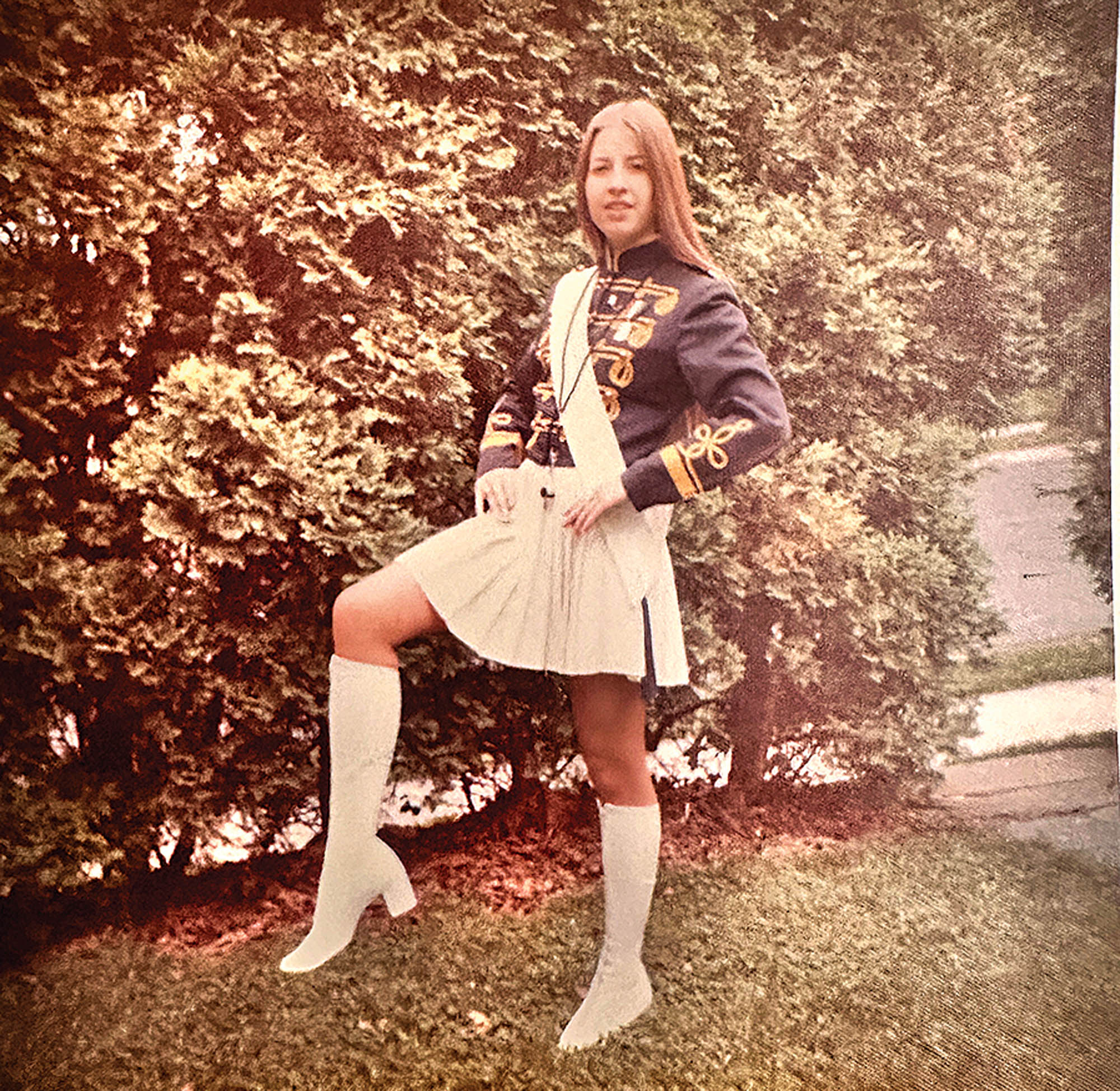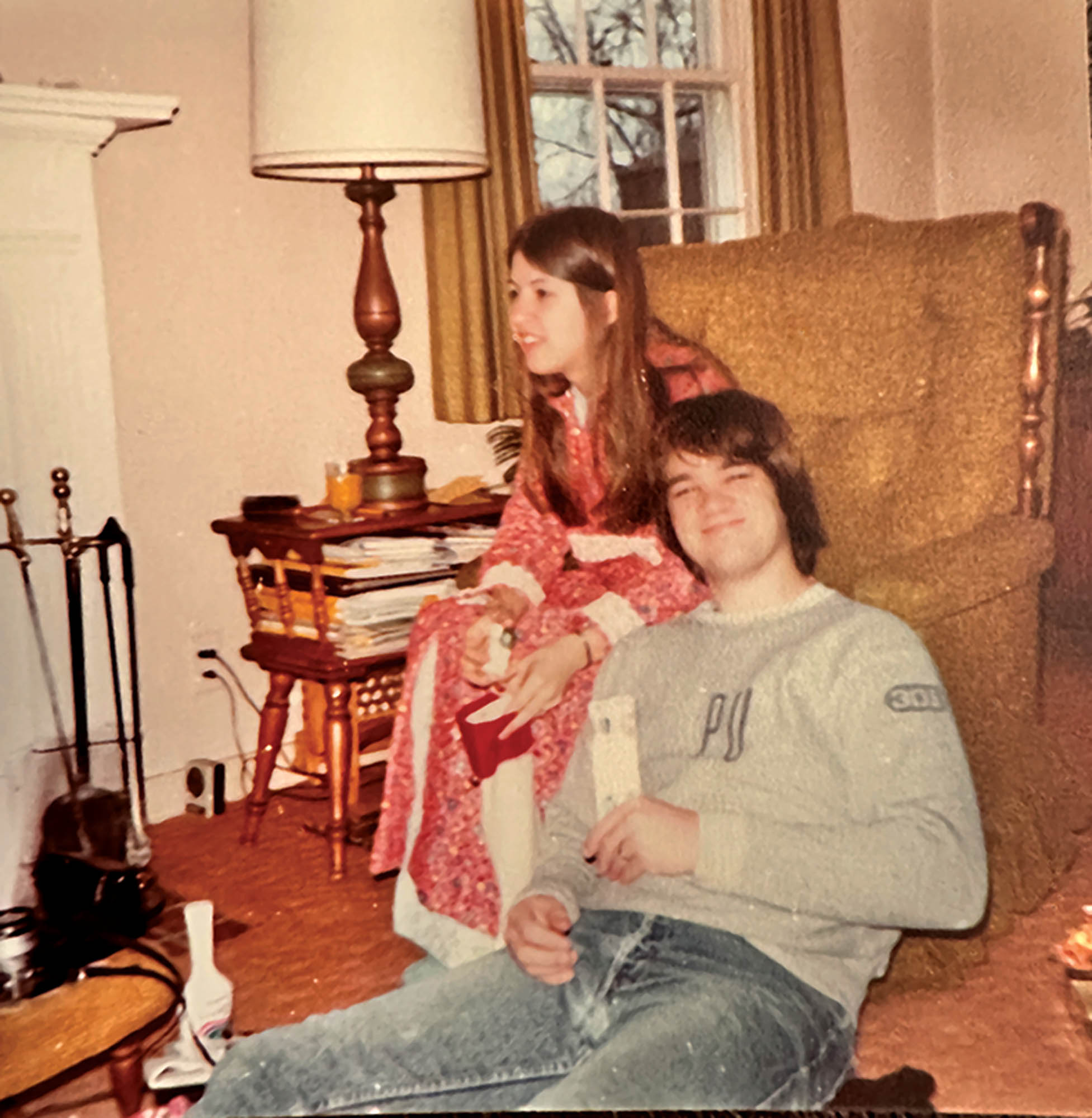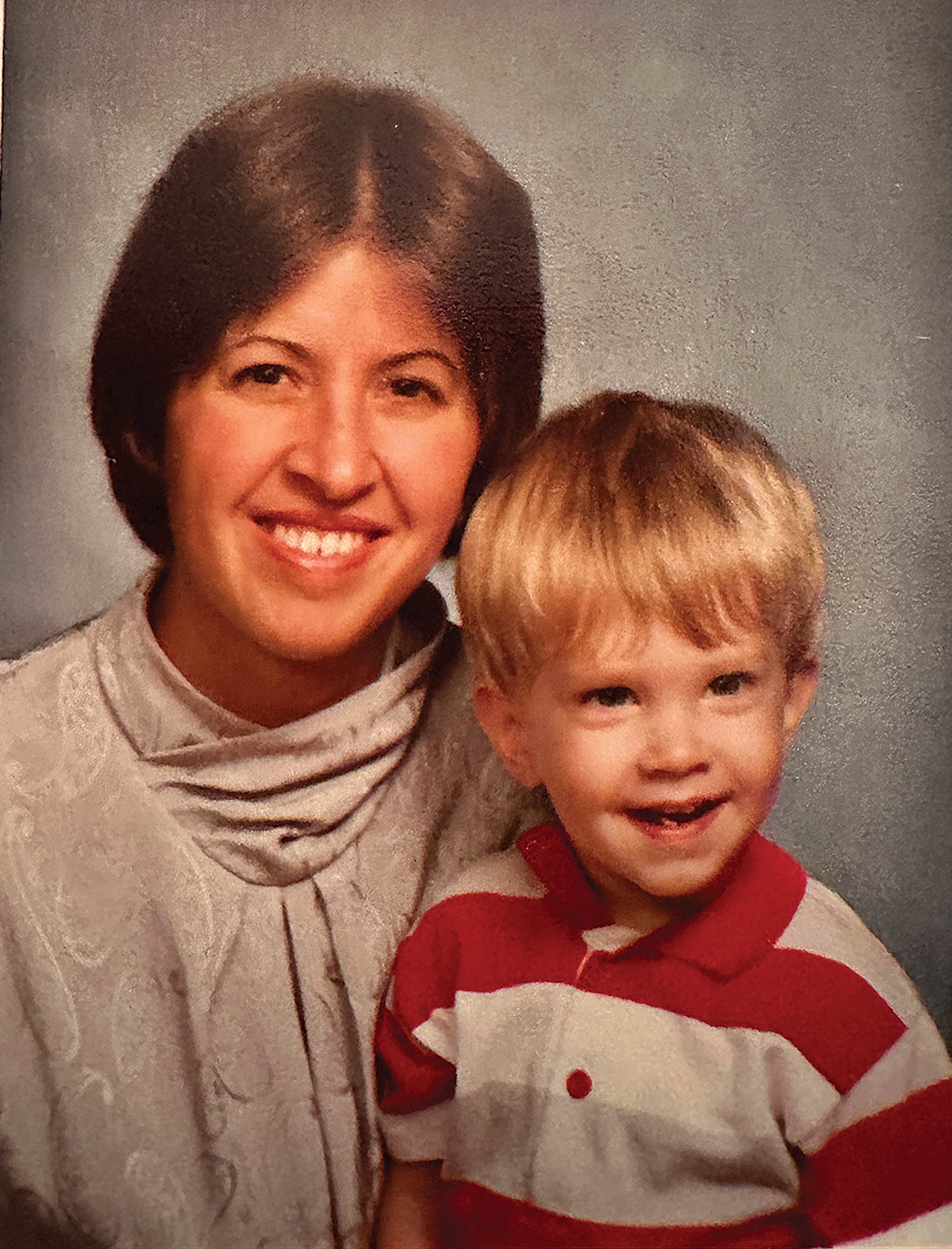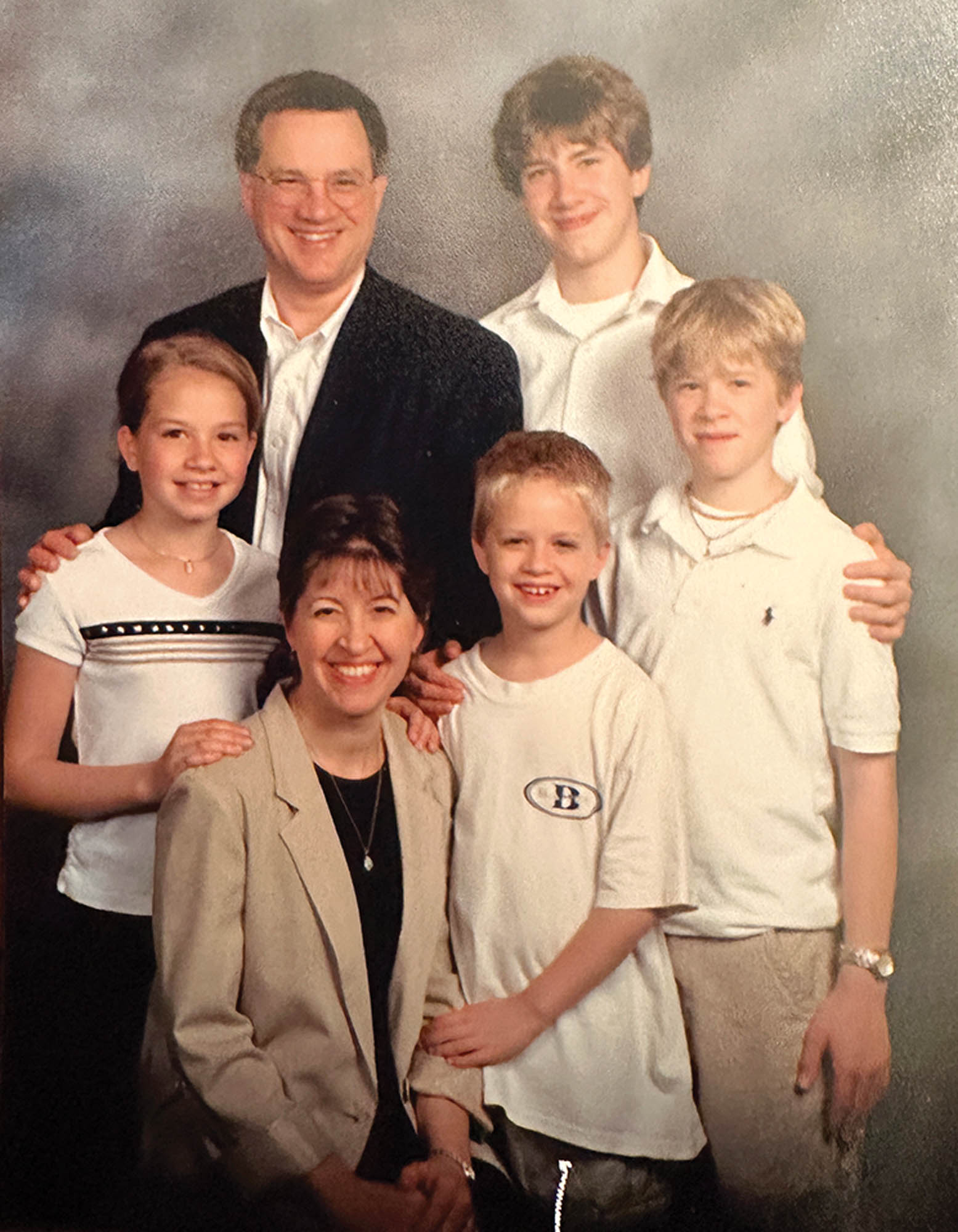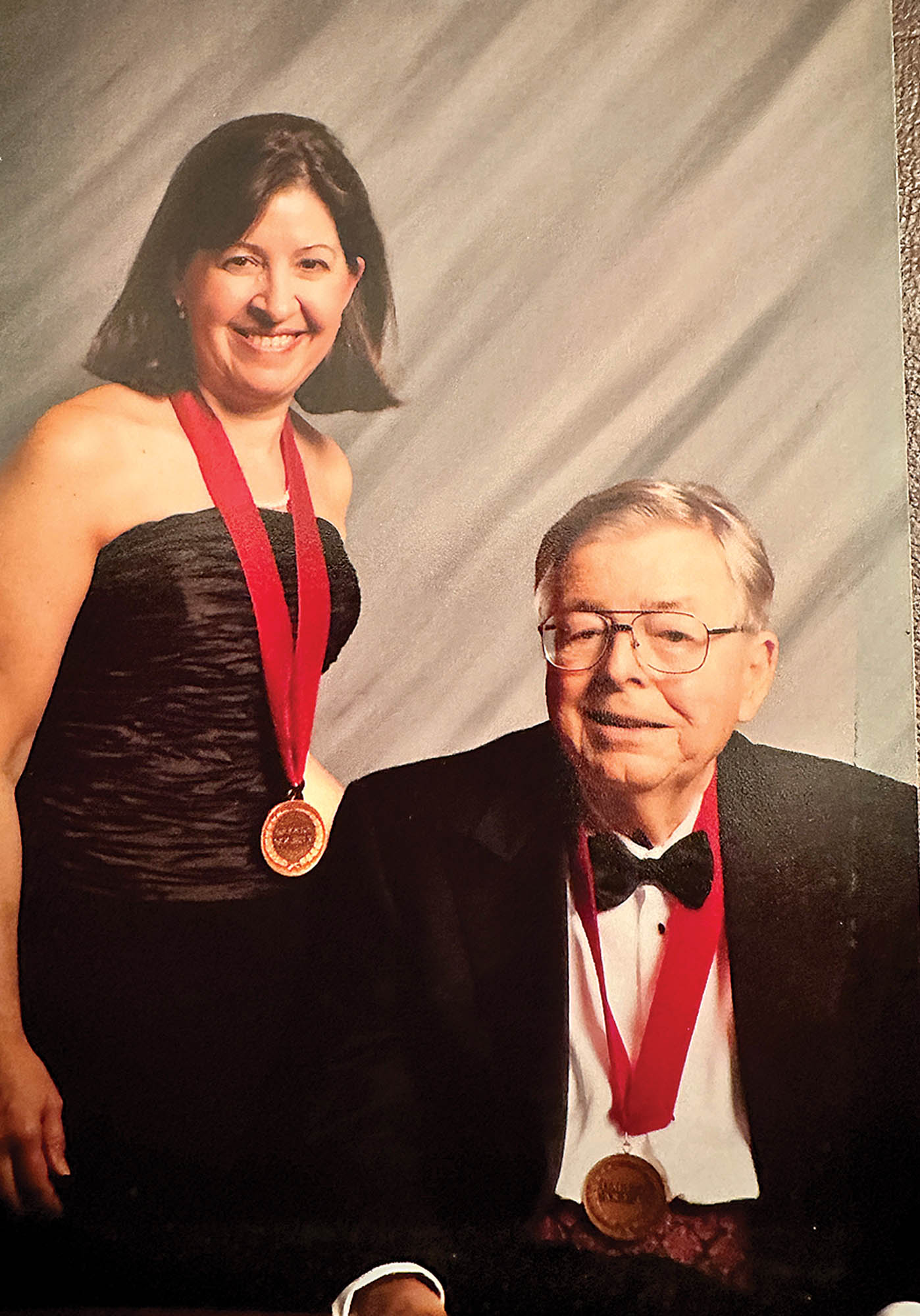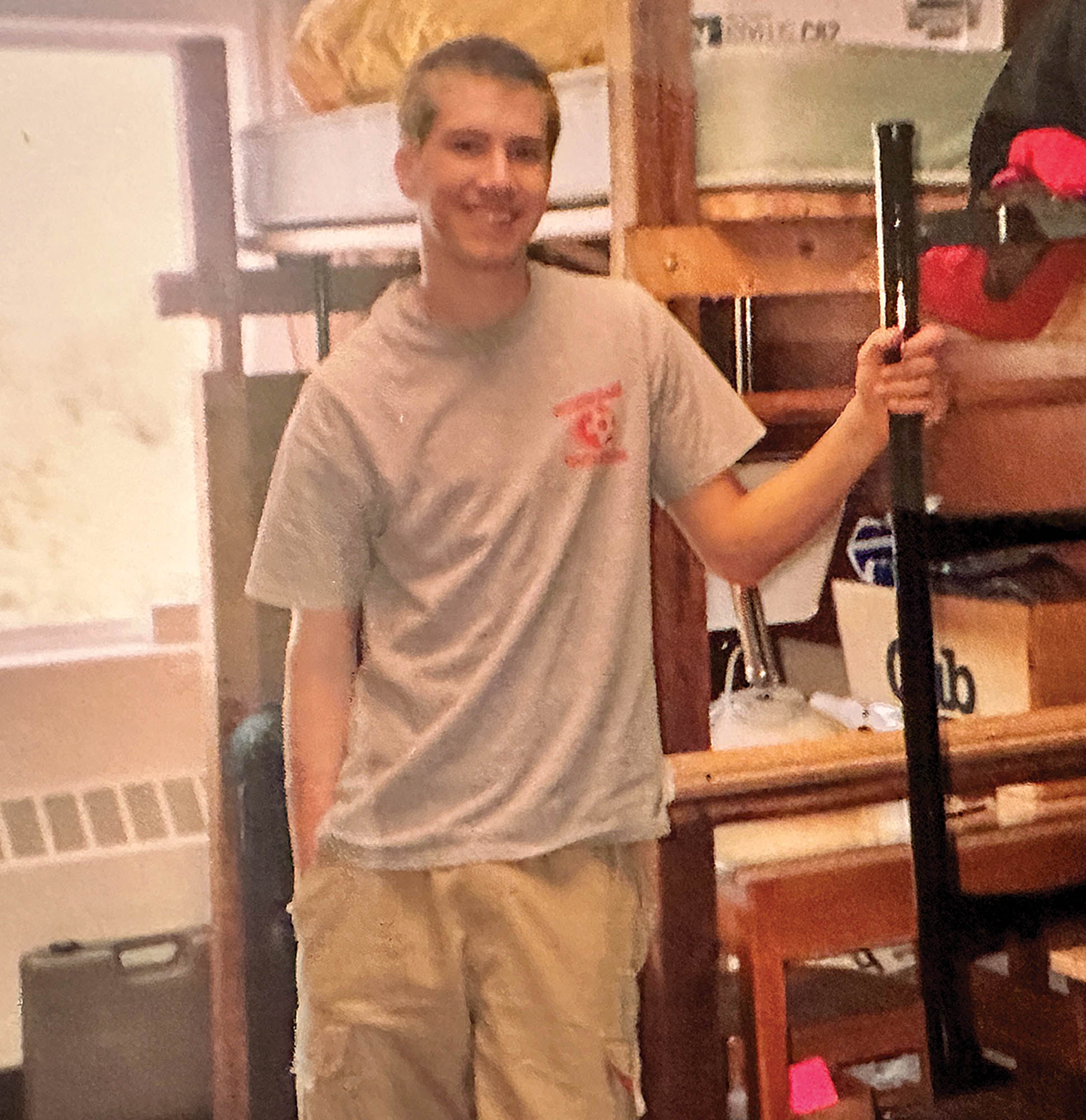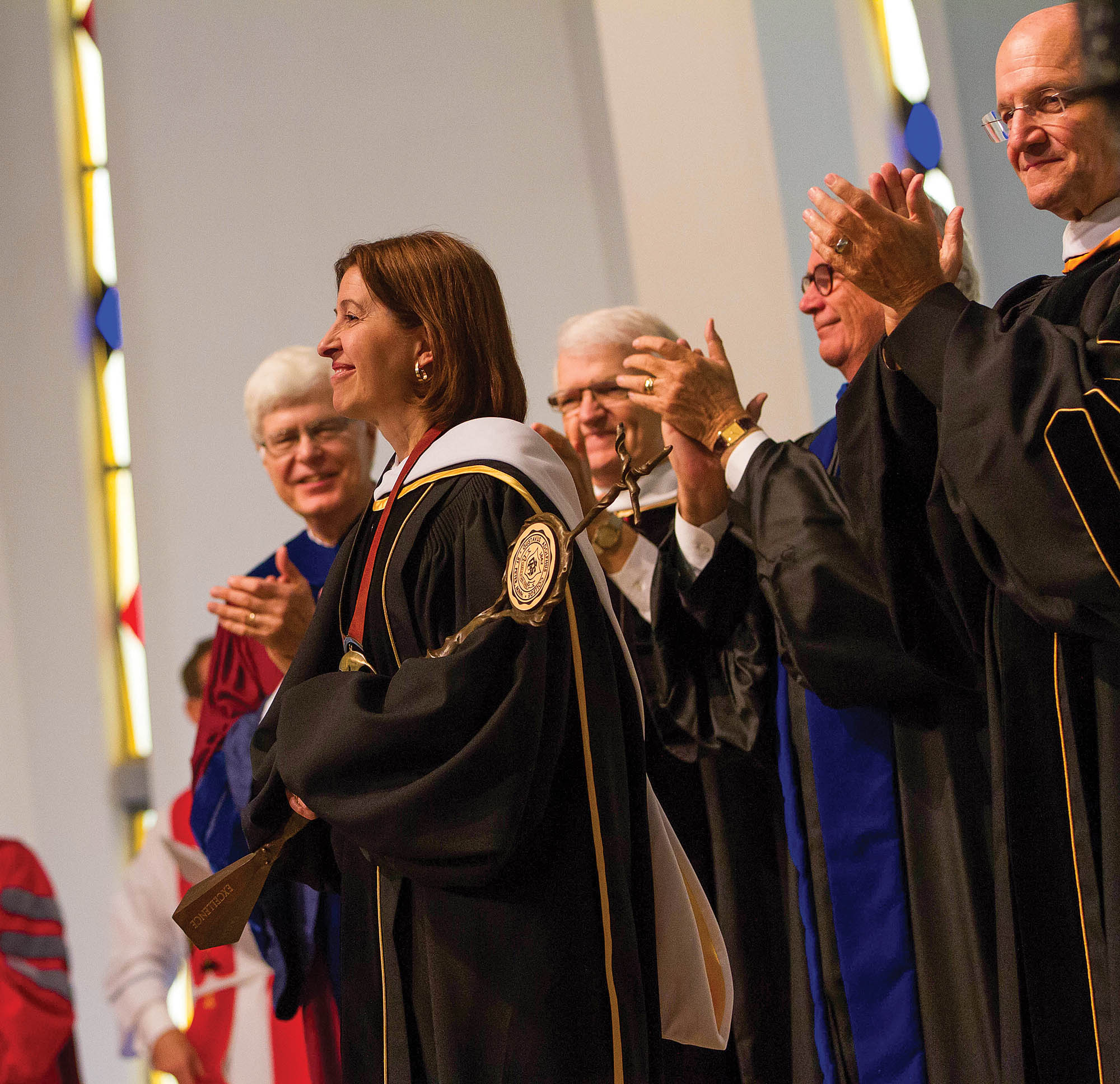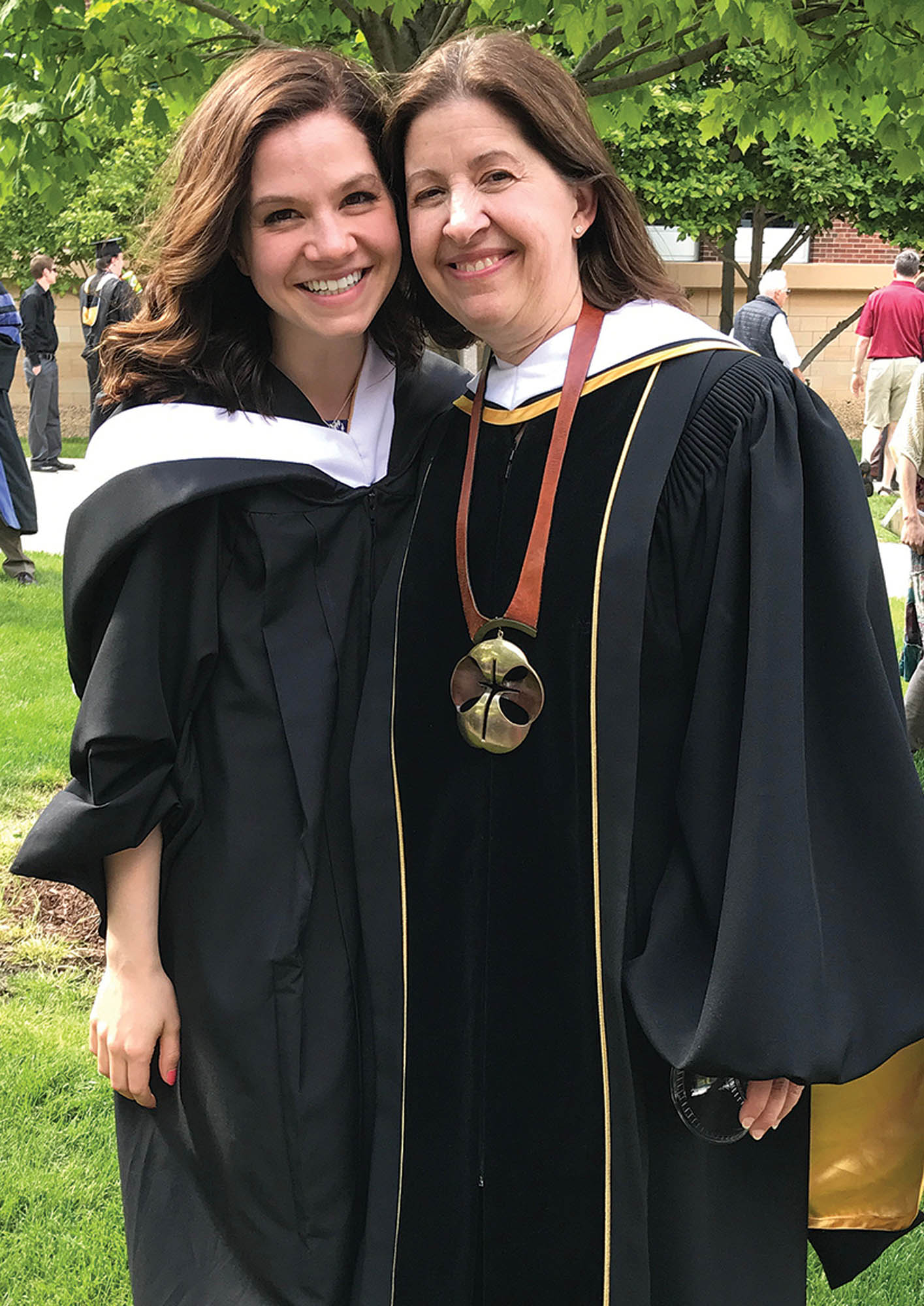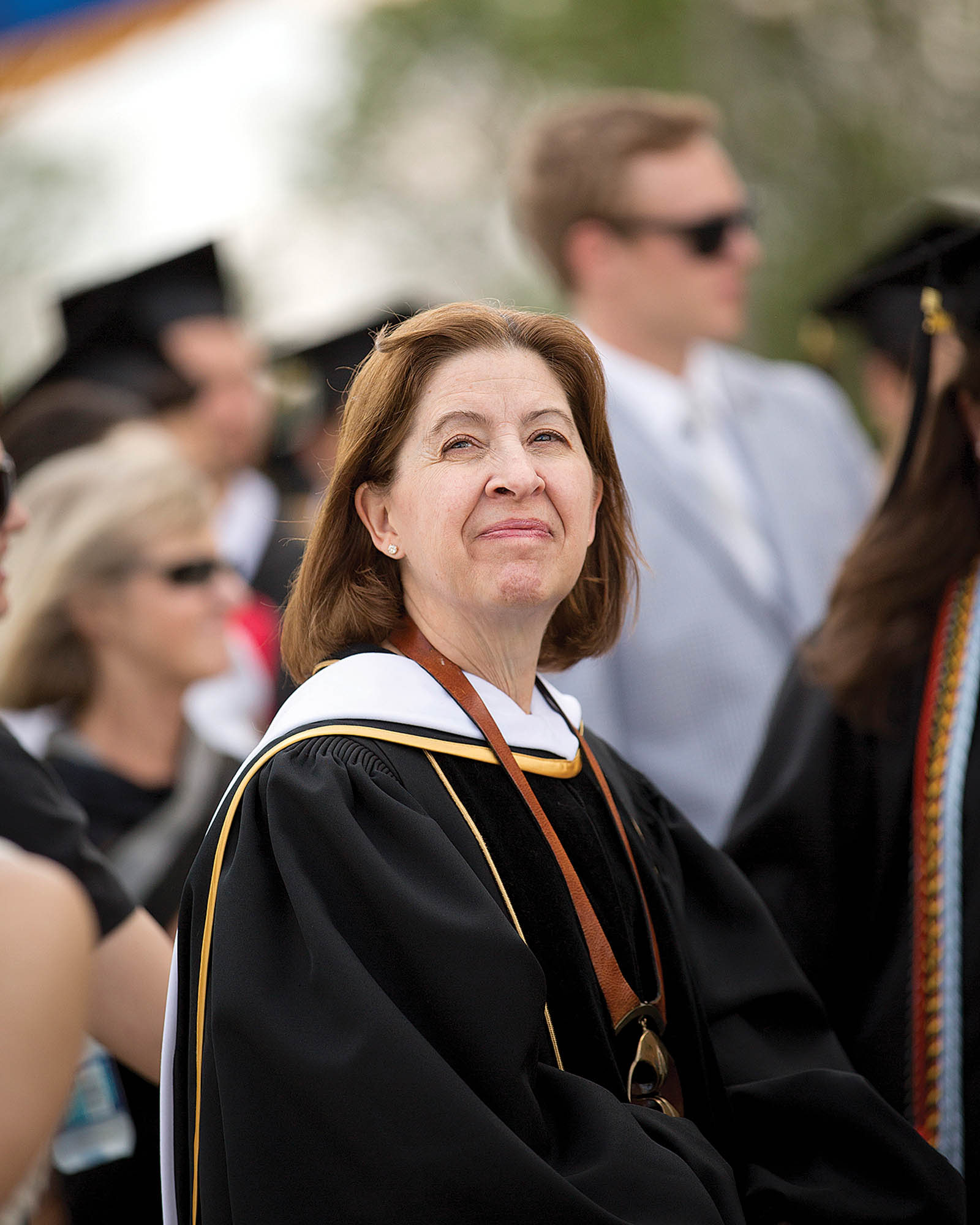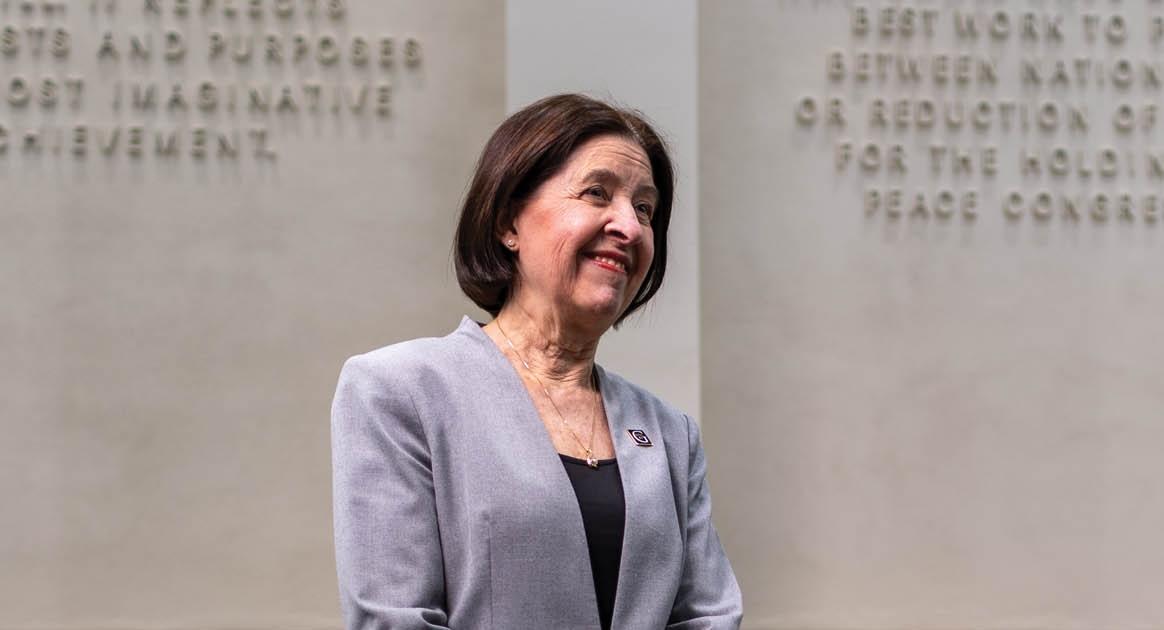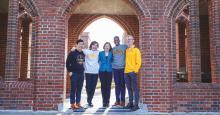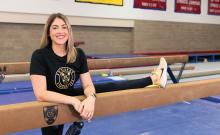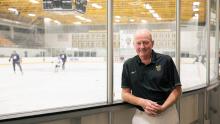As leadership development goes, hers is a unique and fascinating journey. We asked her all about it. From “Make hay while the sun shines” to “Ready, fire, aim” to “mission-central” here’s what our out-going college president has to say about good leadership, and what she hopes you will say about her as she leaves office.
Q: How would you describe your leadership style and how have others described it?
I’m a mission driven leader, one who lives out my values in a way that is consistent and aligned with mission. That stands at the center of leadership for me. If mission is central to your leadership, it’s transferable, meaning that I’m not a different leader here than I was in the corporate world.
Then, I’m a people-centered person. Relationships are very important to me. I think I am an adaptable leader when it comes to working with people. I can work with most anybody. I am a trustworthy leader, a credible leader, a collaborative leader. I am not an authoritarian leader or a top-down leader. I value working with people and leading from within a team. People have said I’m good at strategy and that I have the ability to think big as well as zoom in and deal with the right next step in any given situation. People have said that I’m empathetic yet firm when needed. I like to develop leaders. I like to work with a variety of people. I like the diversity of a leadership team. I’m an optimist by nature. I love contemplating the future direction of an organization, whether that’s one to three years or 10 to 12 years out, with a group of people that can help strategize about where we go from here. I’m not a person who is satisfied with the status quo. Changes are a part of any organization. If you don’t continually drive towards change, you’ll keep getting pulled back to the status quo.
Q: Think about a student ready to walk across the Commencement stage and be a leader. What advice would you give them?
First, I would encourage any aspiring leader to fi nd some good mentors. That doesn’t necessarily have to be a formal mentor. It can be a boss. In fact, I think if a young leader has good leadership early in their career, that’s a natural way to learn. I encourage people to be observant of those they work with, who they admire as leaders, whether that’s their direct supervisor or someone else in a leadership position. Try to understand what makes them effective as a leader, and then try some of those behaviors yourself to see how they work for you. Of course, remember that leadership is personal. You can’t just mimic someone else’s leadership style. You have to develop your own. Then, pay attention to your communication skills. A leader must be good at communicating—whether that’s written or oral. And they must be a good listener, too. Beyond that, develop those personal characteristics that signify a good person, an authentic person, someone who is trustworthy, who pays attention to the ethics and justice involved in any situation. And a little dose of humility is always good thing for a leader. Always be a learner. Be willing to step out when asked to do something new. Confi dence is good, but overconfi dence can trip up a leader if they’re not careful.
If you don’t continually drive towards change, you’ll keep getting pulled back to the status quo.
Q: How does a leader shape or ensure success? How do you get the most from the people you lead?
No leader can ever ensure success. A leader should fi gure out where the potential pitfalls and barriers might be in any situation and how to work around or over or through them. You must be able to adjust when necessary, when things don’t go as expected. And you have to recognize that no one is perfect. Be vulnerable, admit your mistakes and learn from them. For young leaders, having a results orientation is critically important, plus being able to think beyond the day-to-day tasks and understand how decisions may impact the future, in profound ways sometimes. In other words, be sure to get out of your silo and start to appreciate an organization at a broader level.
Q: How does a residential liberal arts setting facilitate leadership development in its students?
I think the liberal arts is an environment that is perfectly set up for students to gain leadership qualities and leadership thinking skills. Students have a chance to experience both depth in a specific discipline as well as the breadth of a multidisciplinary approach to education. The fact that you can do both very effectively at a residential liberal arts college like Gustavus is unique and highly valuable for career success. The basic teaching within the liberal arts is about critical thinking, problem solving, effectively communicating, developing a global mindset, and wrestling with social justice and the fact that the world is populated by people and challenges everywhere. These are essential qualities of good leaders. Our students can come out of a liberal arts education with the ability to make a difference in the world, to become leaders in their communities, to have an impact in ways that are lasting and meaningful.
Q: Who are some who have had large impacts on you as a leader?
First and foremost, my thoughts go to my father. He was a great leader. He was a quiet leader. And yet when he spoke, people listened. I could see how people went to my dad for advice, and how thoughtful he was in leading people. And then, when I was a teenager, he became a Lutheran bishop, which is a leader of leaders. I saw how he drew a line in the sand with respect to ethics; how adaptable he was when people were on the right side of the line and how firm he was with anyone who crossed that line. That was a big lesson from my dad. The second thing my dad taught me was, “Make hay while the sun shines.” He grew up on a farm. He worked hard when he needed to work hard to do the things that needed to get done. And so he was an action-oriented leader, always making hay. A second leader that I have great admiration for is Medtronic founder Earl Bakken. He was also a quiet leader yet a profound thinker. He drew up a 100-year plan for the company—that’s the kind of strategic thinker that he was. And yet he was also an action-oriented leader, an innovator. One of his favorite phrases was, “Ready, fire, aim.” That’s action oriented, with care and good judgment, of course. I loved science because it involved experiments—build a hypothesis, learn something new, decide if it’s worth pursuing beyond that, and repeat the cycle. This idea of “ready, fire, aim” for me meant, “If you know enough, go ahead and try something.”
Q: On the one hand you have experimentation, innovation, calculated risk. On the other, tradition and refi ned excellence. How do you balance those two and encourage an organization to fall where they should on that spectrum?
In my earlier career, I was in research and development. We were called to create the future there, especially in my case, in technology. We were always looking for the next new thing. What we learned was that you don’t change 10 things at once. That’s the way to go off the rails. Instead, look for the areas where you’re confident in your core but can advance in a way that is innovative and takes you to a new place or new level. The way to balance risk is in the right blend of “tried and true” with “new and different.”
Q: As you think about your legacy at Gustavus, all the changes that the College has been through, what do you see as your greatest accomplishments?
First of all, I can’t help but smile because I have truly loved every minute. The thing that comes to mind for me is the difference we’ve made—that I’ve had a part in making—in the lives of our students. I recently took a count of how many students have crossed the Commencement platform who I have had the opportunity to shake hands with and congratulate: 5,650 or so Gusties who I have sent off into the world. I have great hopes and dreams for each of them, and I know that they will each fulfill our mission in their own way as leaders in society. That, to me, says so much about who I am. How much I have truly enjoyed our students and watched them grow up here, becoming great leaders ready for their next step, whatever and wherever that is for them. And then I’ve had a chance to meet with so many of our alumni, those who have gone out and done amazing things in the world. And I get to reminisce with them about their time at Gustavus. That’s full of joy for me too.
Q: What do you want people to say about you after you leave Gustavus?
I’d like people to say that I made a difference, that I advanced the mission of this institution, that I led with empathy and compassion for the people here and for our students. I’d like people to say that I’ve been generous with my time, that I have integrated my time here in ways that have been beneficial for the College, whether it’s here on campus with our students, in thousands of meetings, or with alumni and donors. I’d like people to say that I have the qualities of a leader that people would admire. I’d like people to say that as a team of leaders we made good decisions to make this Gustavus education for our students special, memorable, and meaningful. And I’d like our alumni to say that they have taken this College on the hill with them forever as a place that they love, a place that made a diff erence for them, and a place that they will always treasure. °

